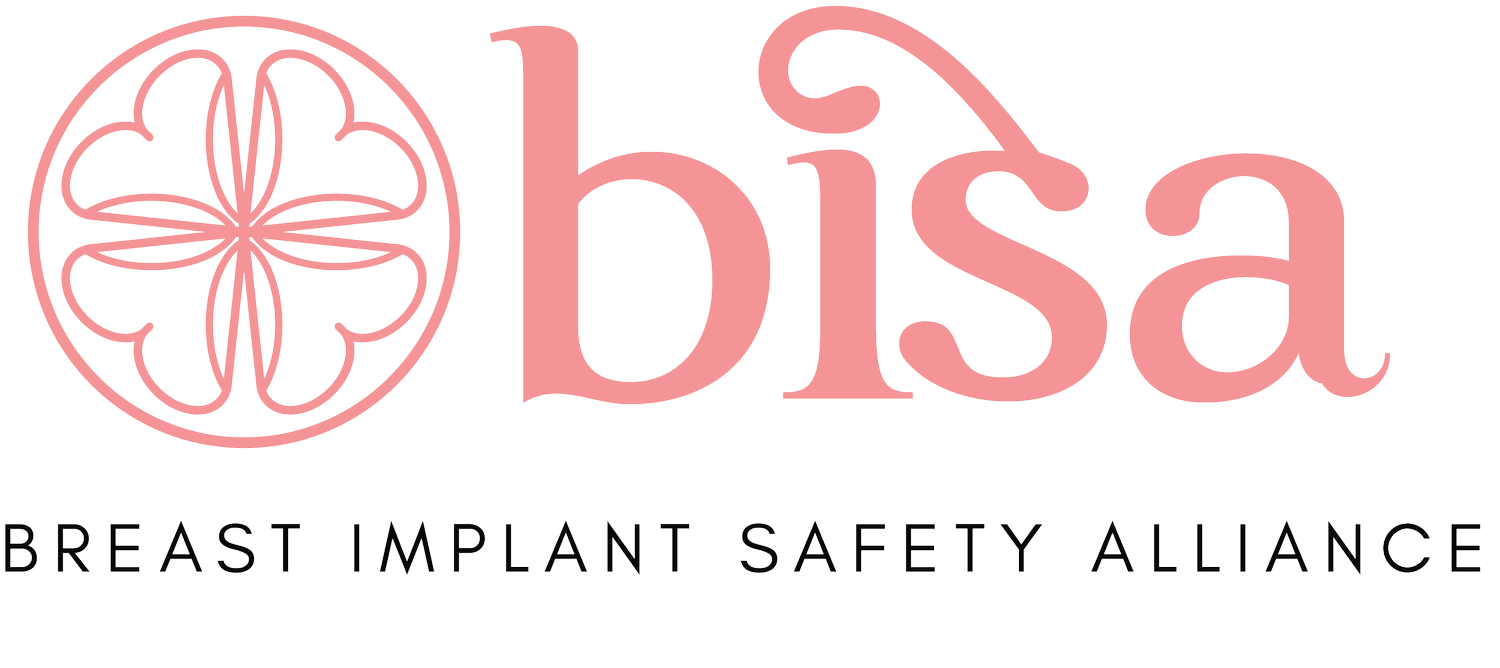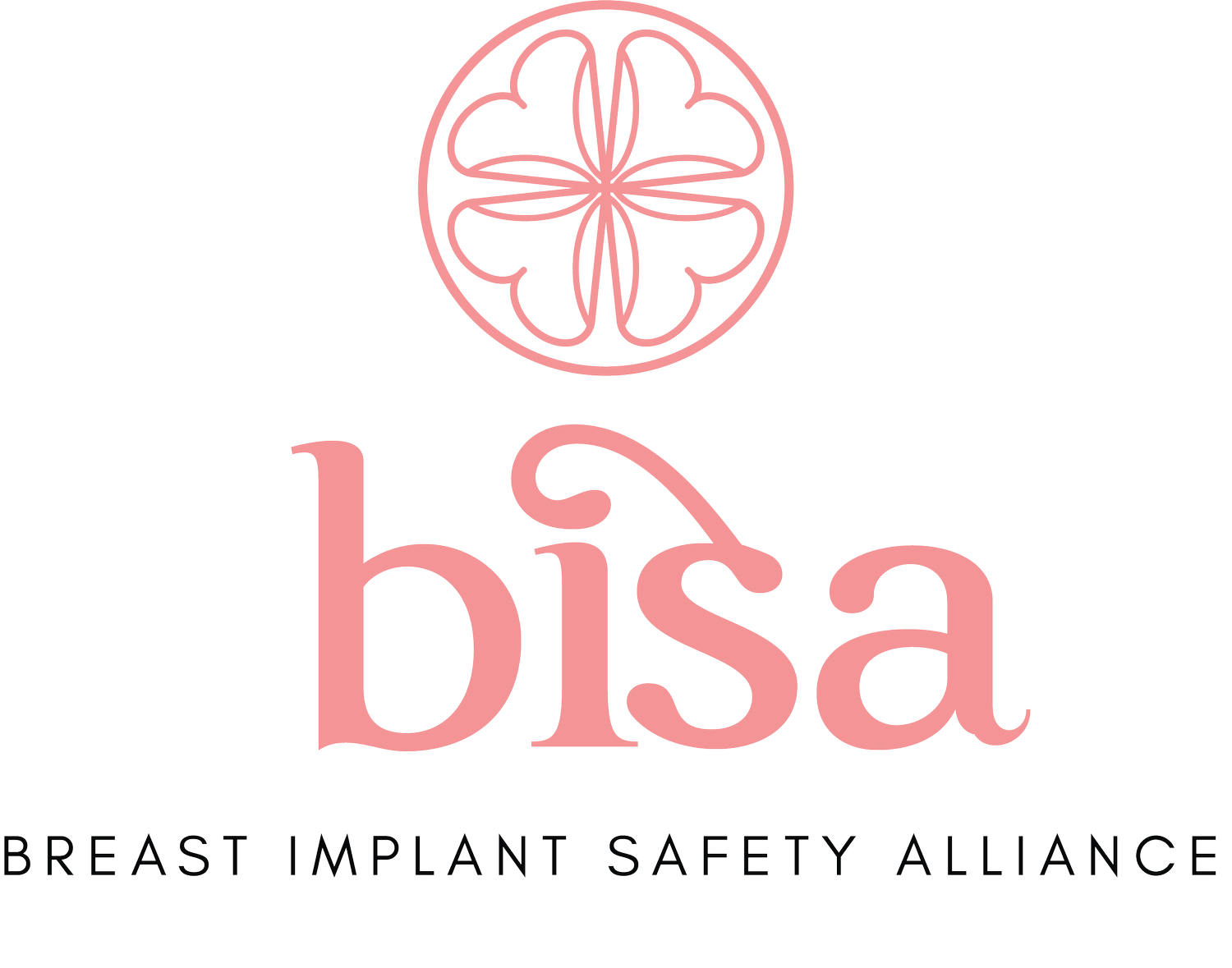Centering Patient Voices in Real-World Evidence: New MDIC Guidance Opens the Door and BISA Highlights the Path Forward
In today’s rapidly evolving healthcare landscape, the collection and use of real-world data (RWD) is shaping the future of medical device regulation, innovation, and patient care. As patients and advocates, we know that data alone is not enough. True progress happens when patient voices are treated as essential, not optional.
The Medical Device Innovation Consortium (MDIC) is an organization that brings together key stakeholders and regulators like the FDA, hospitals, researchers, medical device manufacturers, and patient organizations with the goal of making medical devices safer and more effective. MDIC develops tools, research, and guidelines to improve how devices are developed, evaluated, and monitored.
Earlier this year, MDIC released its Direct Patient Input in Real-World Data (RWD) Framework, a resource meant to guide medical device companies in how to better gather and use patient feedback across the full life cycle of a device, from development through post-market surveillance. The framework encourages collecting diverse, meaningful, and culturally informed patient input using tools like digital health apps, wearables, patient surveys, and registries. It also highlights how artificial intelligence and machine learning can help turn raw patient data into evidence to guide decisions in both regulation and clinical care.
BISA’s Connection to MDIC
Maria Gmitro, President and Founder of the Breast Implant Safety Alliance (BISA), has been a member of the Medical Device Innovation Consortium (MDIC) since 2020. She has contributed her expertise when possible as a member of the Patient Advisory Group, the Science of Patient Input (SPI) Post-Market Working Group, and the SPI Steering Committee. In 2022, she was invited to speak at the MDIC Annual Patient Forum, highlighting the importance of patient voices in regulatory science.
More recently, Madris Kinard, BISA’s data expert and CEO of Device Events, has served on MDIC working groups and has presented on the critical role of adverse event data in improving device safety and transparency.
The Value of Lived Experience and the Risk of It Being Misused
As a patient advocacy organization, Breast Implant Safety Alliance (BISA) recognizes the importance of cross-sector collaboration in improving medical device safety. We appreciate MDIC’s efforts to include patient input in regulatory science and innovation.
As a public-private partnership, MDIC receives funding from both government agencies and industry stakeholders. While this model supports collaboration, it can also raise concerns about potential conflicts of interest.
BISA supports efforts that recognize the value of lived experience in shaping medical device policy and innovation, however we approach these developments with cautious optimism. As an advocacy group who also represent women harmed by medical devices, we know firsthand that the collection of patient data does not always lead to meaningful change.
For many in our community, women who have experienced long-term harm from breast implants, real-world evidence (RWE) is not a technical phrase. It’s real life. It’s pain, illness, financial hardship, and in some cases, cancer. We’ve seen what happens when systems prioritize speed to market over safety, and when “patient input” is reduced to a checkbox rather than a true collaboration. Too often, data is collected but not acted on, or worse, it’s selectively applied to support industry interests.
What Patients Deserve
To build and maintain public trust, it is essential that industry funding does not influence how patient data is interpreted or how patient voices are integrated into decision-making. If this framework is to fulfill its promise, patients must be equal partners, not just sources of data. That means:
Helping define which questions are asked
Having access to their own data and how it’s used
Contributing to how success is defined—not just how devices are approved or sold
Without this level of partnership, even well-intentioned efforts can fall short, and real safety improvements may be lost in pursuit of profit. Real-world data and real-world evidence are powerful tools, but only when collected transparently, analyzed ethically, and used to drive meaningful safety improvements.
“Real-world data and real-world evidence are powerful tools, but only when collected transparently, analyzed ethically, and used to drive meaningful safety improvements.”
UDI, Registries, and Transparency
The Unique Device Identifier (UDI) is like a medical implant’s fingerprint. It is a code that tells identifies the manufacturer, model, and batch of the device. It’s critical for tracking recalls, adverse events, and long-term outcomes. The UDI system only works if patients receive their device info and if it's reported into a transparent registry. Right now, many patients don’t often get their UDI card, and there’s no universal requirement for surgeons to report it. Without UDIs linked to real-world data, we can’t fully assess safety risks like BIA-ALCL or systemic symptoms.
MDIC’s framework highlights the importance of registries, but registries are only as strong as their data, and who controls access to it. Transparency isn’t optional. It’s the foundation of patient protection.
BISA urges the following patient-centered safeguards:
Full adoption and use of Unique Device Identifiers (UDI) to allow patients and clinicians to know exactly which implants or devices were used, when, and by whom
Public access to registries, not databases controlled solely by industry or select stakeholders
Mandatory reporting of device problems (adverse events)—and a requirement that those reports be reviewed and acted upon swiftly and transparently
Without these basic protections, real-world data cannot fulfill its potential to keep patients safe.
Additional Recommendations for a Patient-Centered Approach
To ensure the Direct Patient Input in Real-World Data Framework leads to meaningful outcomes, BISA recommends the following enhancements:
Plain Language and Health Literacy
Patient-facing materials, surveys, and consent forms should be written at a 6th to 8th grade reading level. Patients must be able to clearly understand the risks, benefits, and purpose of any device or study without needing specialized medical knowledge.Meaningful Informed Consent
Informed consent must go beyond a signature. Patients should receive clear, complete, and unbiased information about device risks, known complications, and how their data will be used.Shared Decision-Making
Patients should be active participants in decisions about their care. Tools and communication must support individual values, needs, and lived experience—not just statistical outcomes.Education and Understanding of RWE
Patients must be educated about real-world data—what it is, how it’s collected, and how their input will be used. This ensures their participation is informed and intentional.Culturally Competent Engagement
Data tools and outreach efforts must be co-developed with diverse communities and reflect cultural, linguistic, and social differences to ensure equitable participation.
“Transparency isn’t optional. It’s the foundation of patient protection. ”
Moving Forward
The release of this framework presents a real opportunity to improve how medical devices are developed, monitored, and held accountable but its impact will depend entirely on how it is implemented and whether patient communities are meaningfully included.
Real-world data must be patient-powered, patient-protected, and patient-prioritized. That means not only collecting data, but creating a system where patients understand, consent, and help shape the outcomes that impact their health and lives.
BISA stands ready to collaborate with industry, regulators, and researchers where patient voices are not just included but respected, valued, and acted upon. We believe safety cannot be secondary to innovation. Patients must be equal partners, not data points, not afterthoughts. With meaningful inclusion, this framework can become more than a tool for industry; it can be a turning point for patient trust, protection, and progress.
As patient advocate and breast implant cancer patient Terri McGregor stated at the 1st World Consensus Conference on BIA-ALCL, “Engage your patients. They are the ultimate stakeholder.” We couldn’t agree more.
Resources & References
MDIC Direct Patient Input in Real-World Data Framework
BISA President Speaks at MDIC Patient Forum in Washington, D.C.
FDA: Real-World Evidence Program
FDA: Patient Engagement in the Medical Device Industry
Health Literacy Online (from HHS/ODPHP)
National Academy of Medicine – Health Literacy Resources
Agency for Healthcare Research and Quality (AHRQ): Shared Decision Making Tools
Patient-Centered Outcomes Research Institute (PCORI
FDA: Unique Device Identification (UDI) System
National Evaluation System for Health Technology (NESTcc)
FDA MedWatch: The FDA Safety Information and Adverse Event Reporting Program
National Quality Forum (NQF) – Patient Safety
ProPubica: How the FDA Failed to Protect Millions of People
BISA: FDA Patient Engagement Advisory Committee Meeting on Patient-Centered Informed Consent
BISA Speaks at Session, Meets with FAS to Improve FDA Advisory Committees
About Breast Implant Safety Alliance (BISA)
The Breast Implant Safety Alliance (BISA) is the largest organization of board-certified patient advocates and subject matter experts in the world dedicated to patient and consumer safety relating to breast implants. Representing the millions of individuals worldwide that currently have, had, or are considering breast implants, the alliance is a non-industry funded leading authority dedicated to providing balanced, evidence-based information for informed decision making about breast implant surgery and related issues. Founded in 2019 by women, BISA is a grassroots nonprofit organization led by volunteers who do not receive a salary for their work.
Contact: Maria Gmitro, President | maria@bisanonprofit.org


